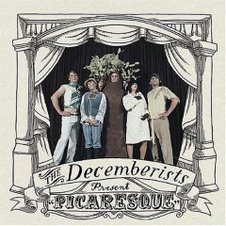Every once in a while, an event will come along and remind us how limited our understanding of the past is. The Hofmann forgeries fascinate me, mostly because of how close we came to completely misunderstanding the restoration and Joseph Smith. Even more remarkably, the man responsible was not a contemporary of Joseph Smith, but a returned missionary living 150 years afterwards. We have enough trouble reconciling stuff Joseph said (see Zelph); what would we do if we had to defend white salamanders too?
My question is, considering the relative ease with which Hofmann fabricated Mormon history (and he could have succeeded too, had he not been greedy), does this undermine your confidence in other sources for early Mormon history? Are we under misapprehensions about troubling aspects of Church history or do we pretty much have the right idea? Are falsifications like Hofmann's likely to get found out, simply because people are terrible at keeping secrets?
Subscribe to:
Post Comments (Atom)




2 comments:
Two comments:
This doesn’t answer your question, but what I found most disturbing about the Hofmann thing was the church buying his forgeries for what I can only assume were suppression purposes. And then there was the bogus story that church funds weren’t used but that church members bought the documents and donated them to the church. Since the church is primarily funded by member donations, that story just doesn’t pass the smell test. Hofmann sure did lured them in with the favorable forgeries first. Once the fraud was exposed, the church came off as a major enabler of Hofmann.
I never took the Zelph thing seriously and wonder why it's even in the D&C (why it’s canonized). My take on it is JS came across the group of grave robbing saints and wanted to convey that this was the remains of real person who was due respect and they shouldn't be disturbing the grave. Given the racism of JS’s time, the Zelph parable conveys the point much more powerfully than had JS just rebuked them for Indian grave robbing. At least that's my take on it. Look at how BY’s imposed his bigotry upon all of us for generations with that mark of Cain BS which I think was just a doctrinal rationalization for BY’s toleration of slavery in Utah. JS was ahead of his time, but had to live in his time.
Interesting, Steve.
For some reason, the Church buying up the forgeries doesn't bother me at all. I haven't sat down and read Salamander all the way through, so I am a little hazy on the timeline.
It seems to me the Church did both of the following things (and please correct me if I am wrong):
1. The Church thought the increasingly weird Hofmann documents were genuine, and was buying them up to control access to them and possibly suppress them.
2. The Church eventually found out they were forgeries and bought them anyway, to keep them out of the hands of anti-Mormons (who wouldn't care about the authenticity).
I think both are defensible.
If you assume that the church leaders believe that the church is true, and they start finding all this weird stuff, it seems only natural that they would want to examine it and try to make sense of it. Brigham and Joseph said some outlandish things from time to time, so it's not like this is unheard of. If the G.A.'s were uncomfortable about the things they found, doesn't it make sense they would want to shield the rest of the church from it (for a while anyway). Did we expect them to hold a General Conference and say, "the Church isn't true because it all came from a Salamander"? They were probably struggling to reconcile their testimonies with this weird, new information. I'll bet it was a huge relief (in one way) to discover the forgery.
The second case might be a little trickier to explain. They didn't know that Hofmann was headed to murder, jail, and disgrace. His forgeries were good enough to fool the church; they were more than good enough to fool academics and polemicists for ages to come. It made sense to try to protect the church in the least conspicuous way possible. Had Hofmann not been discredited in such a public and unambiguous way, I'd bet there would be hundreds of anti-Mormon websites claiming we believed in prophetic reptiles and mocking us.
The Church was put into an impossible situation through deception, and I don't blame them for what they did.
P.S. I am pretty sure Zelph did not make the D&C (for which we should all be grateful). I am sympathetic to your Zelph and BY ideas.
Post a Comment